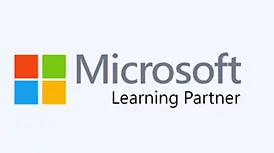Course Details
Course Description:
The PL-600: Microsoft Power Platform Solution Architect course is designed to give you an introduction to the Solution Architect role and to help them prepare to pass the PL-600 certification exam.
Solution Architects are responsible for the successful design, implementation, deployment and adoption of an overall solution. The Solution Architect make sure that the solution meets the clients needs now and in the future.
During this course, students will learn about decisions a Solution Architect makes during an implementation, covering security, integrations, Power Apps architecture, Power Automate architecture, and more.
Audience Profile
Senior Consultants (both functional and technical) that aspire to be Solution Architects, or current Solution Architects that are new to the role.
Job role: Solution Architect
Preparation for exam: PL-600
Module 1: Becoming a Solution Architect/Getting to know your customer
Topics
Defining a Solution Architect
Role of a Solution Architect on projects
Project Methodology
Getting to know your customer
Group exercise - Getting to know your customer
Module 2: Conceptualizing the design from requirements
Topics
How to lead the requirement collection effort
Using fit gap analysis
Pillars of good architecture
Blueprinting the solution architecture
Group exercise - Design from requirements
Module 3: Project governance and working as a team
Topics
Solution Architect's role in project governance
Techniques for keeping a project on track
Scenarios that could cause a project to fail
Group exercise - Project governance and working as a team
Module 4: Power Platform Architecture
Topics
Key Power Platform architecture components
Understand how platform design and limits influence solution architectures
Updates and feature releases
Understand how to communicate how the platform meets customer needs
Module 5: Data Modeling
Topics
Data model influences
Data model strategy
Data types
Data relationships
Group exercise - Data modeling
Module 6: Analytics and artificial intelligence
Topics
Planning and evaluating requirements
Operational reporting
Power BI
Enterprise BI
Pre-built insights and custom AI
Module 7: Power Apps Architecture
Topics
Discuss options for apps and how to choose where to start
Discuss app composition options
Using components as part of your app architecture
Considerations for including Portals as an app in your architecture
Group exercise - Power Apps Architecture topics
Module 8: Application Lifecycle Management (ALM)
Topics
Microsoft vision and Solution Architect's role in ALM
Environment strategies
Defning a solution structure for your deliverable
Lab : ALM Hands-on Lab
Module 9: Power Automate Architecture
Topics
Discuss options for automation and custom logic
Review considerations for using triggers and common actions
Explore using Business Process Flows (BPF) to guide users through business processes
Group exercise - Evaluate scenarios for Power Automate usage
Module 10: Security Modeling
Topics
Solution Architect's role in security modeling
Discovery and learning your client's environment
Controlling access to environments and resources
Controlling access to CDS Data
Group exercise - Security Modeling
Module 11: Integration
Topics
Solution Architects role in Integrations
What is an integration and why do we need it
Platform features that enable integration
CDS Event Publishing
Scenarios for group discussion
Module 12: Dynamics 365 Applications Architecture
Topics
Solution Architect's role when deploying Dynamics 365 apps
Architecture Considerations for primary apps
Group exercise - App specific working groups evaluate requirements
Module 13: Power Virtual Agents architecture
Topics
Introduction
Chatbot options
Chatbot concepts
Best practices
Integrate chatbots
Power Virtual Agents in Microsoft Teams
Module 14: Robotic Process Automation
Topics
Introduction
Power Automate Desktop
Recording and editing tasks
Running desktop flows
Process advisor
Module 15: Testing and Go Live
Topics
Solution Architect's role with testing and go live
Planning for testing
Planning for go live
Students should have both functional and technical knowledge in the following areas:
- Microsoft Power Platform
- Dynamics 365 customer engagement apps
- Related Microsoft cloud solutions
- Other third-party technologies
We offer live-instructor group training classes for your team.
Upskill your team from the comfort of your office or online.
Benefits of Group Training Include:
- Experienced Professional Instructor Trains Your Team
- Content Focused On Your Team's Needs
- Convenient Scheduling and Class Setup
- Significant Per/Student Cost Savings
- Online, On-Site and Blended Options Available
Virtual Live Instructor
Financing Available
Free Repeat






Testimonials
This was the class I needed.
The instructor Jeff took his time and made sure we understood each topic before moving to the next. He answered all of our questions, and I don't know about the rest of the students, but was very pleased with this experience.
I finally understand how to use Excel.
-Amanda T (Yale New Haven Hospital).
Great class!
We were able to cover a lot of information in one day without getting overwhelmed.
-Maria R (Microsoft).
We offer private Power Platform group training services for organizations looking to upskill their team members with a live-instructor.
Training options include:
Learn more about how Power Platform Private Group Training from Business Computer Skills can help your team.



